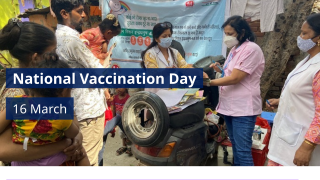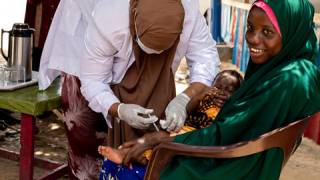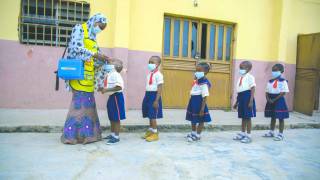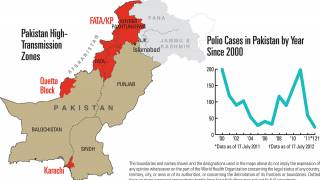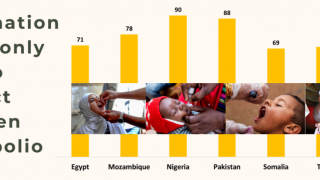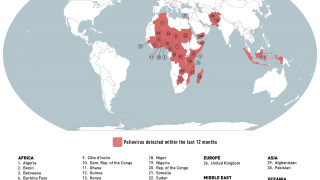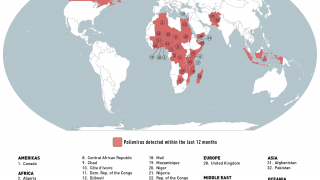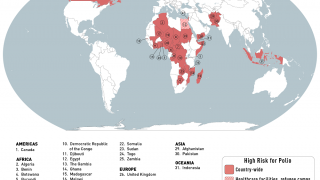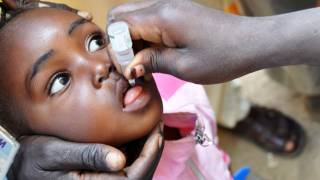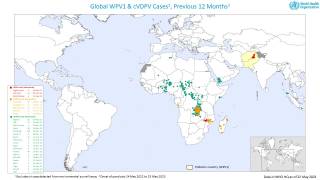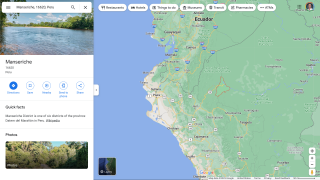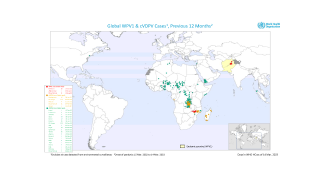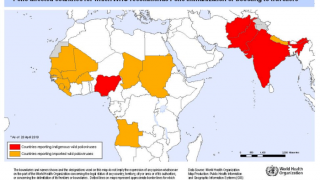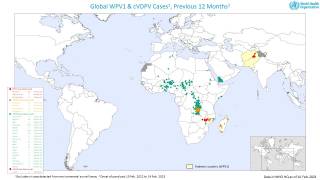Are Many New Yorkers Infected with Poliovirus?

When New York public health officials announced a case of paralytic polio in Rockland County, New York, in July 2022, it was the first reported instance of polio in the USA since 2013.
Because the patient had not traveled internationally during the potential exposure period, detection of Vaccine-derived poliovirus type 2 (VDPV2) in the patient’s stool samples indicates a chain of transmission within the USA originating with a person who received a type 2-containing oral polio vaccine (OPV).
Moreover, genomic sequencing suggests that poliovirus has been circulating in New York for about one year, according to the U.S. Centers for Disease Control and Prevention (CDC).
Since July, wastewater detection systems have confirmed the virus's presence in New York City, Rockland, and Orange Country.
Based on these numbers, "[a] paralytic case is a red flag that tells you there could be 100 people or more in the community who are not showing symptoms," polio researcher Yvonne Maldonado, MD, chief of the Division of Pediatric Infectious Diseases at Stanford University Medical School, said in an interview with The JAMA Network, published on August 25, 2022.
Although poliovirus infections in the USA are rare and have not been identified outside New York State, risk factors vary regionally, so it's prudent to be aware of any local risk or sign of the disease, wrote Howard Larkin.
According to Aaron E. Glatt, MD, a general polio outbreak is unlikely.
"One patient does not mean a pandemic, but we do have to be concerned about it, so there isn't a second, third, and hundredth patient," he said in an interview with JAMA.
Dr. Glatt emphasized that polio outbreaks could happen anywhere: "Nobody has a lock on this; every group, every ethnicity, every region of the country has its pockets of unvaccinated people."
Infection with poliovirus, an enterovirus that primarily infects the intestinal tract, typically causes a flu-like illness.
Depending on the virus type, 1% to 5% of people with infections will develop meningitis.
About 0.5% to 0.05% of those infected will develop paralysis after the virus infects the spinal cord, and a small proportion of them will die due to breathing problems, according to the CDC.
Although wastewater surveillance is helpful, it may be incomplete, and "given the ease of travel, any area may be at risk," Jesse Hackell, MD, chair of the American Academy of Pediatrics Committee on Practice and Ambulatory Care, said in an interview with JAMA.
In 2022, polio cases have been confirmed in non-endemic countries in Africa, Asia, and Europe.
For example, in March 2022, Israel confirmed poliovirus was present and launched the 'Two Drops' vaccination program for millions of children.
Then, the city of London, England, reported poliovirus in specific wastewater samples.
Vaccine-like type 2 poliovirus (PV2) isolates were found in multiple sewage samples collected from the London Beckton Sewage Treatment Works between February and June 2022.
This sewage treatment plant covers a large catchment area across North and East London and has a population of close to 4 million.
As of August 23, 2022, the U.K. Health Security Agency stated: All children aged 1 to 9 years in London need to have a dose of polio vaccine now. For some children, this may be an extra dose of the polio vaccine on top of their routine vaccinations.
And in New York, health leaders are also taking preventive action.
The New York Department of Health issued a HEALTH ADVISORY: Update #2 on August 19, 2022, stating: All children, adolescents, and adults who are unvaccinated or under-vaccinated should be brought up to date with all routine CDC-recommended IPV doses.
This is particularly important and urgent if they live, work, attend school, or have frequent social interactions with Rockland and Orange Counties communities.
The U.S. CDC's website says, 'for best protection, children should get multiple doses of a polio vaccine, and previously vaccinated people can get a one-time polio vaccine booster, under certain conditions.'
There are two types of vaccines that can prevent polio, the Inactivated poliovirus vaccine (IPV) and the Oral poliovirus vaccine, which is offered abroad.
The IPV protects against both wild-type polio and this weakened poliovirus strain.
The good news is that IPV is readily available in the USA.
In addition to public health clinics, local pharmacies and pediatricians offer polio vaccination services.
'Until poliovirus eradication is achieved worldwide, importations of both wild polioviruses and VDPVs into the United States are possible,' says the CDC.
PrecisionVaccinations published fact-checked, research-based vaccine news curated for mobile readership.
Our Trust Standards: Medical Advisory Committee

